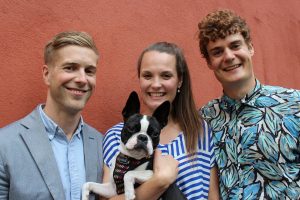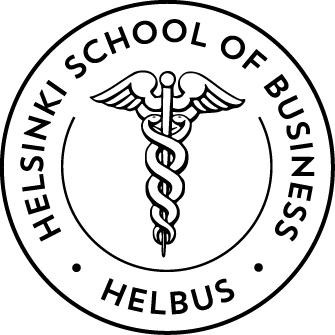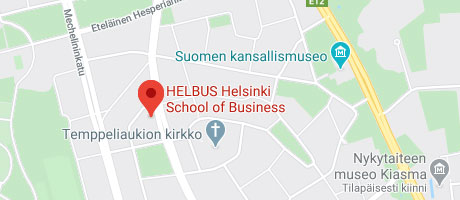
Futures School answers: Can I make wrong decisions in my studies or career?
In this blog series, we are discussing issues related to the future together with Futures School (Tulevaisuuskoulu) specialists. What will your future work life look like, are you scared of what will happen in the future or what if you’ll have a robot as a colleague? In this first blog, we consider if there are wrong choices. Many may wonder, what if I make wrong choices in my studies or career?
Sometimes decisions do not seem right, but should they really be labelled as wrong choices? Making a ‘wrong choice’ involves the idea that there is a goal and a path towards it, and one mistake on the path could jeopardise the achievement of the goal. However, Teija Peura, teacher at Futures School, reminds that there is usually not just the one path, there can be many paths and bends in your journey.
Otto: The world is changing at an unprecedented rate, and we cannot know what kind of professions there will be in the future or what kind of know-how will be needed. For example, according to the World Economic Forum, 65% of children starting their schooling will become employed in professions that are not yet in existence. The Foundation for Young Australians, on the other hand, estimates that young people are heading for a career that will include 5 changes of work field and 17 different positions. In these circumstances, blind commitment to one path or goal becomes more and more difficult – and even damaging. Future careers will increasingly incorporate several major crossroads where the ability to live with uncertainty, change and continuous learning will be critical.
You should aim to have this mindset. Everyone can outline their own alternative futures by considering different options, or using the methods of future research. Alternative futures are those paths discussed above, and by exploring them, you can learn to understand your active role as a builder of your own future.
As we now reflect on making choices and their consequences, we can also think about the future of learning. As we live in a world of continuous development with a constant capacity for change, we are moving away from the notion that only certain qualifications or courses can build specific skills. Degrees, skills and job descriptions are diversified and being rewritten at a wild rate. Instead of boasting certain courses or titles in your CV, it is increasingly important to know how to demonstrate your skillsets instead.
Otto: Technology is developing exponentially, and as a result the skills and understanding needed in the future are changing too. For example, the World Economic Forum estimates that 50% of the substance knowledge captured during the first year of a four-year technical qualification is already outdated by the time the students graduate.
Teija: If you think about time spent studying, I think it will incorporate more and more of the skills needed to take you on the next step of your own career path. After this step, it will be easier to identify your own strengths and to share them in different working life situations. Studying helps you identify, in addition to your own strengths, personal development targets that are critical for future growth. One will also learn how to work hard to reach personal goals. More and more, we are transitioning to a world in which the first degree is just a springboard, a start-up screen, and therefore I think that the probability of making it “the wrong choice” is very small. Everything you learn will always take you forward.
Today therefore you can think of your chosen field as the type of spectacles you want to wear as you look at the world. Dare, however, to also deviate from this familiar perspective and break the traditional imagery.
Teija: After graduating from university I was sure that I would pursue a career path that reflected my current interest. Instead, I was surprisingly offered a job that focused on a fairly strange subject that did not seem to fit my career plan. At the time, I was unsure as to whether I wanted to take the challenge but eventually I did and it was only afterwards that I realised that although I was working around many unfamiliar environments, I also had to deal with a surprising number of tasks that related to that ” old path.” These were also the ones that gave me the most passion and drive in the position.
It is not worth worrying about whether you’ve made – or will make – wrong choices. As long as you make decisions that reflect you and your strengths, they will take you towards a positive future!
Teija: I would like to tell every young person or new jobseeker to challenge themselves to stop and explore their own strengths. Take a break, breathe in and wonder. In a world of action, everything may happen fast and choices may seem difficult and final. An important skills in the future, is to have the ability to value your own path with all the turns and ups and downs. Side steps and the courage to fail make us interesting people. The main point is not who has failed most in life, but who has been able to rise again and continue onwards after disappointment. If you feel that you have made a wrong choice or failed, it is important to identify what you’ve learned and demonstrate how you’ve grown and developed from the experience. The things that we call mistakes, adversities, or failures, challenge us to learn, experience, and think. In the end, this is what makes us human.





Comments